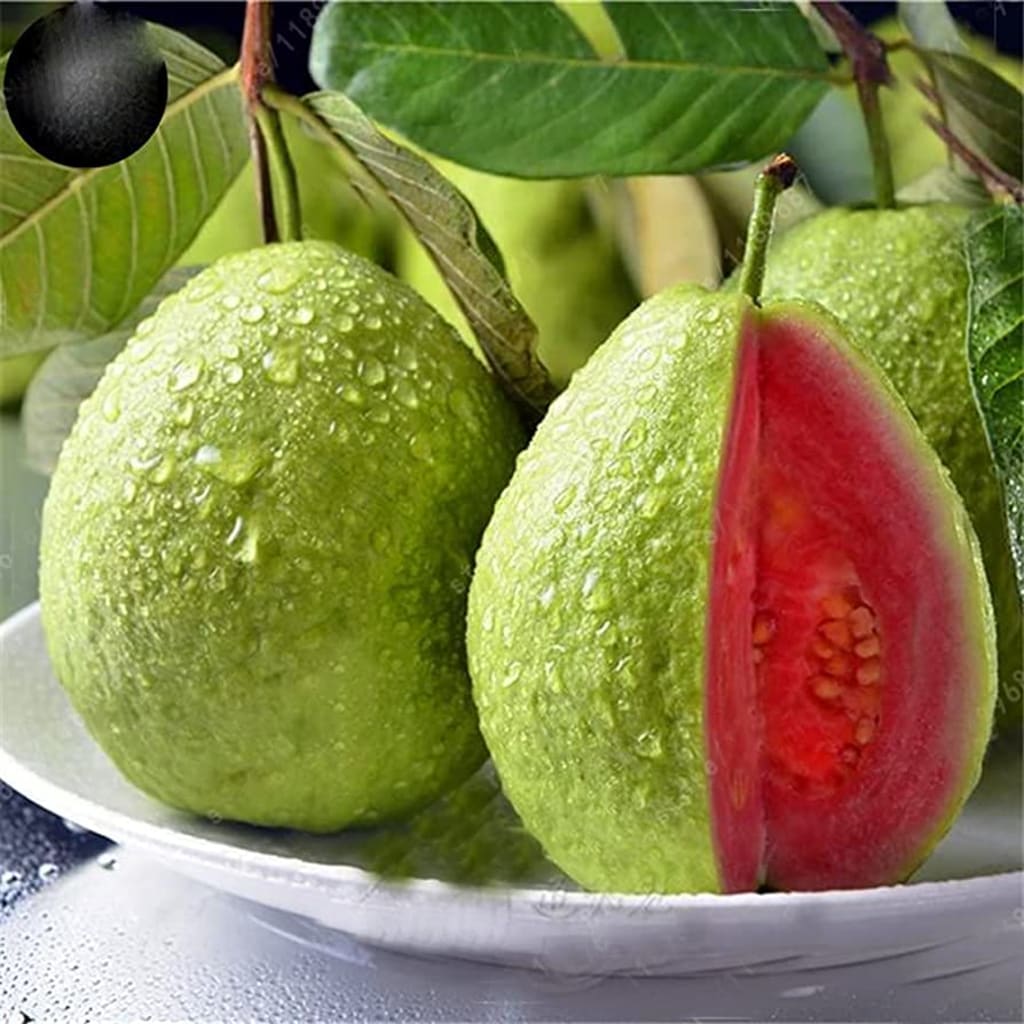
Guava Fruit: A Brief History
Guava fruit, also known as Psidium guajava, is a tropical fruit that is enjoyed worldwide for its sweet and tangy flavor. The fruit has a long history, dating back to the pre-Columbian era in Central and South America.
The origins of guava fruit can be traced back to the region that is now Mexico, Central America, and northern South America. The fruit was cultivated by the Aztecs and other indigenous peoples, who used it both for its nutritional value and medicinal properties. The guava fruit was believed to have healing powers and was used to treat a variety of ailments, from digestive issues to respiratory problems.
With the arrival of European explorers in the Americas, guava fruit was introduced to the rest of the world. The fruit quickly gained popularity in Europe, where it was valued for its exotic flavor and nutritional benefits. In the 17th and 18th centuries, guava fruit was grown in greenhouses in Europe, and was particularly popular in France, where it was used to make jams, jellies, and pastries.
Guava fruit was also brought to Asia, where it became a popular crop in India, Southeast Asia, and China. In India, guava fruit was used in traditional Ayurvedic medicine, and was believed to have a cooling effect on the body. In Southeast Asia, guava fruit was used to make a variety of dishes, from salads to desserts, and was particularly popular in Thailand and Vietnam.
In the 19th century, guava fruit was introduced to the United States, where it became a popular fruit in Hawaii and Florida. In Hawaii, guava fruit was used to make juice, jams, and other treats, and was particularly popular among the islands' Japanese community. In Florida, guava fruit was grown commercially, and was used to make a variety of products, from juice to guava paste.
Today, guava fruit is grown throughout the world, from the Caribbean to Africa to Southeast Asia. The fruit is valued not only for its flavor, but also for its nutritional benefits. Guava fruit is high in vitamin C, fiber, and antioxidants, and has been linked to a variety of health benefits, from improved digestion to a reduced risk of chronic disease.
In addition to its nutritional value, guava fruit has also played a role in the cultural history of many countries. In Mexico, guava fruit is associated with the Day of the Dead holiday, and is used to make a special candy known as "ate de guayaba." In India, guava fruit is associated with Lord Shiva, and is considered a sacred fruit. And in Hawaii, guava fruit is associated with the islands' multicultural history, and is enjoyed by people of all backgrounds.
In conclusion, guava fruit has a long and rich history that spans centuries and continents. From its origins in Central and South America, to its spread throughout the world, to its cultural and nutritional significance, guava fruit has played an important role in human history. Whether enjoyed fresh, cooked, or preserved, guava fruit continues to be a beloved fruit that is cherished by people around the world.One interesting fact about guava fruit is that it is not only the fruit that is consumed, but also the leaves. Guava leaves have been used for centuries in traditional medicine, particularly in the Caribbean and Latin America, to treat a variety of ailments such as diarrhea, fever, and coughs. The leaves contain natural compounds, such as quercetin and gallic acid, that have anti-inflammatory and antimicrobial properties.
Another interesting aspect of guava fruit is its versatility in the culinary world. The fruit can be eaten fresh, cooked, or preserved, and is used in a variety of dishes around the world. In Latin America, guava fruit is often used to make a sweet paste that is used in pastries and other desserts. In India, the fruit is used to make chutneys and is also eaten raw with a sprinkle of salt and chili powder. In Southeast Asia, the fruit is used in salads, smoothies, and as a topping for shaved ice.
Despite its popularity, guava fruit remains relatively unknown to many people around the world. However, as people become more interested in exotic and tropical fruits, guava is gaining more attention. The fruit is becoming more widely available in grocery stores and markets around the world, and is being used in new and innovative ways in the culinary world.
In conclusion, guava fruit is a tropical fruit with a rich history that spans centuries and continents. From its origins in Central and South America, to its spread throughout the world, to its cultural and nutritional significance, guava fruit has played an important role in human history. As people continue to discover the unique flavor and nutritional benefits of guava fruit, it is sure to remain a beloved fruit for generations to come.In addition to its cultural and culinary significance, guava fruit has also been the subject of scientific research due to its potential health benefits. For instance, studies have shown that consuming guava fruit may help lower blood sugar levels in people with type 2 diabetes, due to its high fiber content and ability to regulate insulin levels. The fruit is also rich in antioxidants, which can help protect the body against chronic diseases such as cancer and heart disease.
Furthermore, guava fruit has been shown to have antibacterial and antimicrobial properties, which can help prevent and treat infections. This is due to the presence of natural compounds such as quercetin, catechin, and gallic acid in the fruit. The leaves of the guava plant also contain compounds that have been shown to have anti-inflammatory properties and may be effective in treating inflammatory conditions such as arthritis.
In traditional medicine, guava fruit has been used to treat a variety of ailments, from digestive issues to respiratory problems. The fruit is believed to have healing powers and is used in many cultures to promote overall health and wellness. For example, in Ayurvedic medicine, guava fruit is used to promote digestion and treat diarrhea, while in traditional Chinese medicine, it is used to treat coughs and other respiratory problems.
Despite its many health benefits, guava fruit is not without its potential drawbacks. The high fiber content of the fruit can cause digestive issues in some people, particularly if consumed in large quantities. Additionally, the fruit is high in vitamin K, which can interfere with blood-thinning medications such as warfarin.
In conclusion, guava fruit is a tropical fruit with a rich history and many potential health benefits. From its use in traditional medicine to its culinary versatility, guava fruit has played an important role in human history and continues to be an important fruit in many cultures around the world. As scientific research continues to uncover the many health benefits of guava fruit, it is likely to become even more popular in the years to come.
About the Creator
Mohamed Ahsan
As a child, I always had a passion for words and storytelling. I would spend hours lost in the pages of my favorite books, dreaming of one day becoming a famous writer myself. After years of hard work and perseverance, that dream finally






Comments
There are no comments for this story
Be the first to respond and start the conversation.